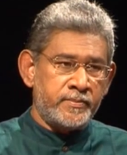The Twin Legacies of Lenin and Fidel
archive

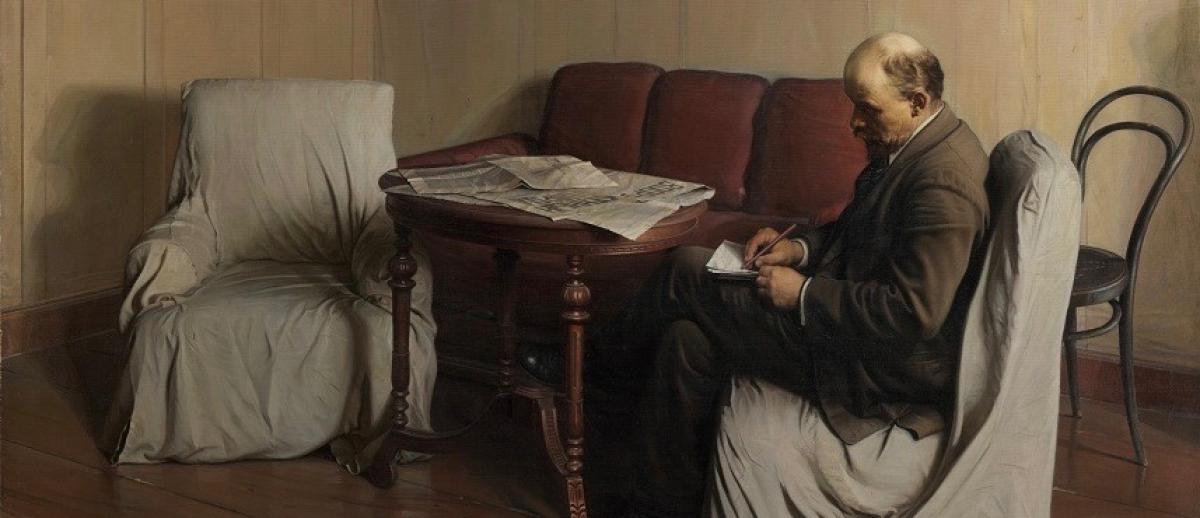
The Twin Legacies of Lenin and Fidel
November 2017 marks two, not just the one important anniversary. The anniversaries are intimately related though of unequal importance. Unequal they are, but not as unequal as they may seem. The first anniversary, on November 7, is the centenary of the October Socialist Revolution or Bolshevik Revolution in Russia, the revolution led by Lenin. The other event commemorates the first anniversary of Fidel Castro’s death.
The Russian Revolution proved that the oppressed and exploited classes could not only revolt (which they had done at least since Spartacus) and seize power (as they did during the Paris commune of 1871) but also retain power and build or attempt to build a radically different social order. The revolution modernized the country, inspired revolutions on almost all continents, built Russia in to a military power that made the greatest contribution to defeating the most heinous evil the world had seen—Nazi fascism—and brought Russia to the point of being a fellow superpower of the United States. The Russian Revolution changed the world order.
The October Revolution leaves us with at least two questions: why did it last only 75 years? What explains the verticality of the drop, from victories in Vietnam, Angola and Nicaragua (1975-1980) to utter collapse by 1990? Why was the Russian Revolution to form part of the political culture, as did the French Revolution?
For a historical event to remain durably in our common cultural consciousness and thus our common global heritage, it must be universal in character. For it to have successfully occurred at all it must be nationally rooted. The Russian Revolution fits both criteria. Why then is it not as easily assimilated and durable as the American and French revolutions? Here the French Revolution is more relevant because it did have a dark side, that of the Jacobin Terror, unlike the self-limiting American Revolution, which was a political but not a social revolution.
No revolution—with two or three exceptions—was able to avoid the phase of Terror of the French Revolution. The partial reversal of the French Revolution under Napoleon (the so-called Thermidor), followed by the crushing of rebellions in 1848 and 1871, made the Bolshevik successors determined to be as ruthless as necessary to save the revolution and avoid the same fate. That ruthlessness was emulated by successor revolutions.
‘Storm and stress’ cannot last forever, however, which is why the Soviet leadership eventually replaced revolutionary fervor with the dull grey conformity of a bureaucratic socialist order that could not justify the sacrifices that were called for. Attempts to emulate western consumerism were only pale imitations which suffered by comparison while awakening appetites which could not be assuaged. Violent tensions were replaced by boredom.
The October Revolution and its tradition died out when—and because—it could no longer hold the imagination, especially of the youth. Reason and realism remained, but the romantic ideals of proletarian solidarity withered away. So too did the revolution and socialism. When the socialist dream, the dream of a whole new and different society, died, so too did the socialist experiment.
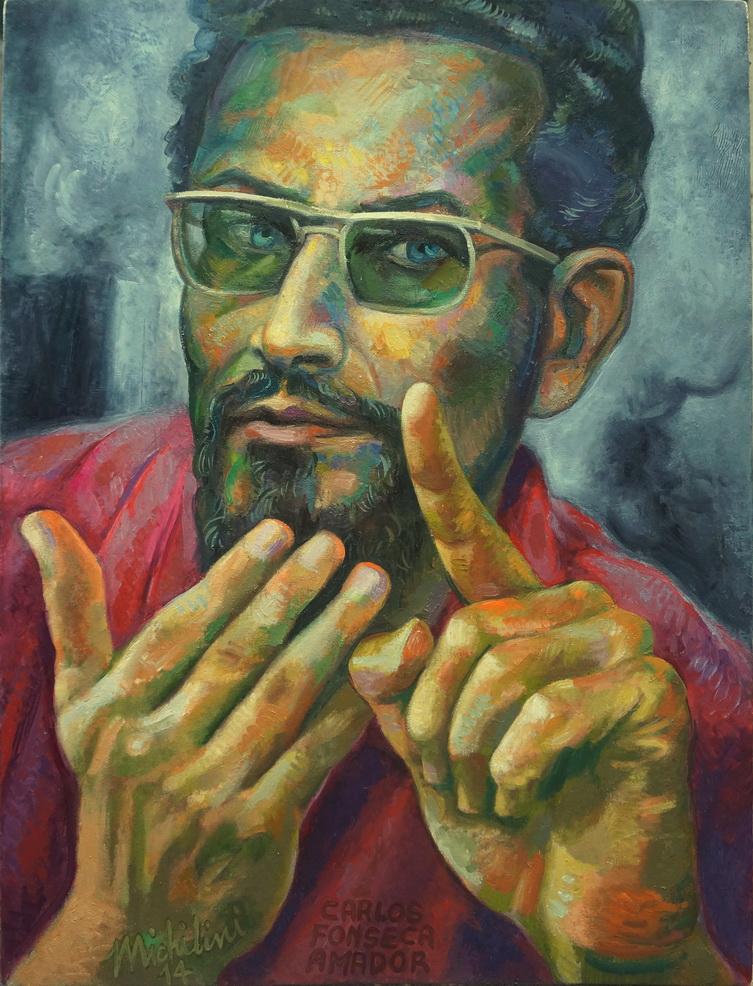
Carlos Fonseca - portrait by Sergio Michilini, 2014
Yet perhaps its most interesting achievement was that it created, however temporarily, a new type of man, a fusion of the Rational and the Romantic types, or if you prefer, of the Rational, Romantic and Realist types of thinking. Even more importantly, the Russian Revolution and the revolutions that followed it represented a synthesis of two antipodes: the thesis of Modernity and the antithesis of Romanticism. From Lenin to Che Guevara and Sandinista founder Carlos Fonseca, the new way of being was as a Modernist Romantic and/or a Romantic Modernist.
The legacy of Lenin must not be limited to the October Revolution. The historic arc of October may well be over, but not so the legacy of Lenin. We may say that what remains, a century after the Russian Revolution, is the contribution of Lenin as a political thinker—his contribution to the history of political theory and strategy.
The legacy of Lenin as a political thinker is far more durable than the legacy of the October Revolution because Lenin’s legacy transcends its time and place though it was born within the Revolution’s historical context. Although Lenin’s immediate project was the seizure of power for the construction of the socialist order, his unity of theory and practice and methodology—of ideas, strategy, and organization—is relevant wherever serious politics is in play and at stake. If, as Althusser said, Marx opened the continent of history to science, then Lenin did the equivalent for politics; Lenin “opened up the continent” of politics to science.
We may say that what remains, a century after the Russian Revolution, is the contribution of Lenin as a political thinker—his contribution to the history of political theory and strategy.
This conclusion can be teased out from the very title of Gramsci’s most famous essay, “The Modern Prince.” His point of departure was Machiavelli’s pamphlet The Prince which Gramsci, following Rousseau, rescued from the hostile propaganda that had surrounded it. Rousseau discerned that Machiavelli, under the guise of advising the Prince, was actually addressing the masses, and that his ultimate project was the progressive one of a republic. (Machiavelli’s republicanism is quite evident in his Discourses on Livy but not so in The Prince). Gramsci went further and highlighted Machiavelli’s project as the reunification of the Italian nation and the construction of a proto-modern Italian state.
Gramsci saw the communist project as being similar to and a successor of Machiavelli’s project, and he viewed Lenin as being on a continuum with the tough-minded terseness of Machiavelli’s political intellect. Gramsci valued Machiavelli’s republican nationalism and state-building while rejecting his cosmopolitanism. In place of cosmopolitanism he upheld Lenin’s combination of the national (not the nationalist) and the internationalist.
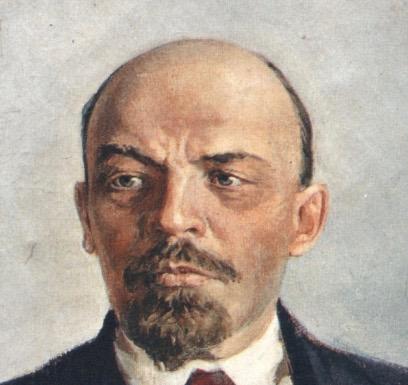
I believe this to be the most generative reading of Gramsci’s analysis, though his assertion must be taken to its logical conclusion. If Machiavelli’s prince was the bourgeois precursor of Lenin’s project, if Lenin’s proletarian project was the Modern Prince to Machiavelli’s classic text, then Lenin is the modern Machiavelli, not only the Machiavelli of the proletariat, but also the Machiavelli of late modernity. Zizek’s latest book on Lenin (2017, Verso) makes a strong pitch for his utterly contemporary relevance, albeit as a communist.
I would venture to suggest that Lenin could be regarded as the Machiavelli of the entire modern era, arguably even of late modernity, given the fluidity of his late (postrevolutionary) writings that Zizek focuses on and celebrates.
If Machiavelli was the founder of modern political science, then Lenin was the founder of a Marxist political science—even if that latter title was to be accorded by the philosopher Louis Althusser to Gramsci instead.
However, this was more explicit than implicit. Marx was a great systematizer; Lenin was not. Therefore, one must not merely follow in Althusser’s footsteps and attempt to rehabilitate Lenin’s contribution to philosophy—‘Lenin and Philosophy’—one must attempt the more obvious task of assessing and reconstructing Lenin as political thinker: ‘Lenin and Politics’. It seems to me that Marx had two political heirs: Engels and Lenin, whose (politico-military?) cast of mind was perhaps closer to one another than to that of Marx.
If Machiavelli was the founder of modern political science, then Lenin was the founder of a Marxist political science.
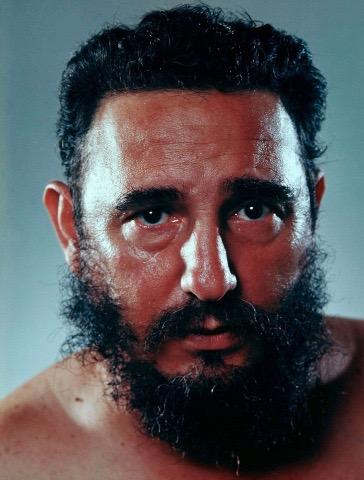
Photo by Yousef Karsh, 1971. Source: Time
Turning now to Fidel Castro, what he did was to articulate and practice a synthesis of internationalism and patriotism, and to bring a militant humanism back into revolutionary socialist practice. The Fidelist revolutionary state was a radical humanist state in its policies and practice at home and abroad. Fidel brought ethics and the moral factor back into socialism. His and Che’s term consciencia was a combination of consciousness and conscience. Right and wrong, good and bad, were brought back into socialism and state policy.
Fidel’s intervention enabled socialism to maintain the moral high ground and to retain its place in the imagination. This is why socialism remains in Cuba. Fidel showed that it was possible to be socialist, revolutionary,
Marxist-Leninist, communist, and morally superior by any universal standard to imperialism and capitalism. If all post-revolutionary regimes practiced the combination of internationalism and patriotism as Fidel did; if all post-revolutionary regimes observed moral-ethical criteria as did Fidel, socialism would not have lost its elan vital—or if I may be permitted a lapse into what Schmitt called ‘political theology,’ its soul—and its historical trajectory. Its destiny would have been different.
Althusser, Louis. Politics and History: Montesquieu, Rousseau, Marx. London & New York,
Althusser, Louis. Lenin and Philosophy and other essays. New York, Monthly Review
Althusser, Louis. Philosophy and the Spontaneous Philosophy of the Scientists and
Althusser, Louis. For Marx. Middlesex, Penguin University Books, 1969.
Gramsci, Antonio. Prison Notebooks Vols1-3. New York, Columbia University Press, 1992.
Jayatilleka, Dayan. Fidel’s Ethics of Violence: The Moral Dimension of the Political Thought
Jayatilleka, Dayan. The Fall of Global Socialism: The Counter-Narrative from the South.
Machiavelli, Niccolo. Discourses on Livy. Chicago & London, The University of Chicago
Machiavelli, Niccolo. The Prince. London, Penguin Classics 2009.
Schmitt, Carl. Political Theology. The University of Chicago Press, 1985.
Zizek, Slavoj. Lenin 2017: Remembering, Repeating and Working Through. London,
